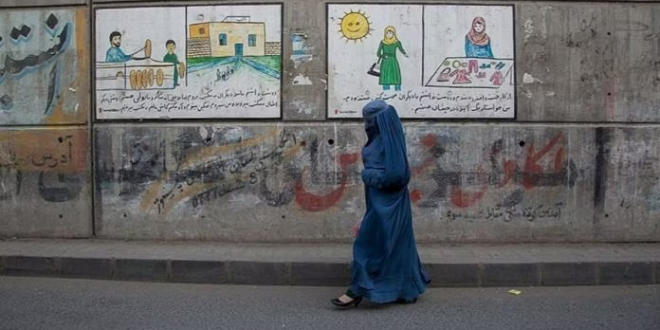KABUL – In Afghanistan, under the Taliban’s rule, women have once again found themselves imprisoned within the walls of their own country. Despite global attention on the crisis, particularly following the 9/11 attacks, the situation for women in the country has deteriorated, and the world appears unwilling or unable to respond meaningfully.
The tragic story of 14-year-old Muhammad Daud, whose hand was severed by a doctor in a public display of punishment, illustrates the brutal nature of justice under the Taliban regime. This gruesome spectacle, witnessed by crowds in stadiums once known for their cultural significance, highlights the ongoing violence against those deemed criminals under the Taliban’s harsh interpretation of Sharia law. Women are not exempt from this violence—executions and public punishments are routinely carried out for alleged moral infractions.
Following the 9/11 attacks, then-First Lady Laura Bush proclaimed that the war on terrorism would also be a fight for women’s rights. But nearly two decades later, that promise seems hollow. The Taliban’s recent measures banning women from studying medicine and barring them from working, operating businesses, or even speaking in public reveal their determined regression to a brutal form of governance. Women’s voices, whether through their actions or their words, are now silenced under laws that treat them as second-class citizens.
Afghanistan’s history with gender justice, though fraught with its own challenges, offers a stark contrast to the current reality. Under rulers like Emir Abdur Rahman Khan and his successors, Afghanistan made slow yet significant strides toward gender equality. In the late 19th and early 20th centuries, women gained limited rights such as the ability to inherit property, divorce, and engage in political life. Even under Emir Amanullah in the 1920s, reforms were introduced that raised the age of marriage and sought to improve women’s access to education and healthcare.
However, these advances were fragile, and with each new regime, the status of women fluctuated between progress and repression. The Taliban’s return to power in 2021 represents a complete reversal of these hard-won gains, as the country has regressed into a violent prison for its female population.
While countries like the United States and India continue to engage diplomatically and provide aid to the Taliban regime, there has been little international outcry or action to protect the women of Afghanistan. The world seems indifferent to the suffering of half the population, as the Taliban imposes its draconian laws and undermines the very dignity and rights it once promised to honor.
The situation in Afghanistan serves as a grim reminder of how easily progress can be undone, and how the cries for help from those oppressed are often met with silence. As the world watches, Afghanistan’s women remain locked in a battle for their rights—one they are being forced to fight alone.
 Afghanistan Times
Afghanistan Times




